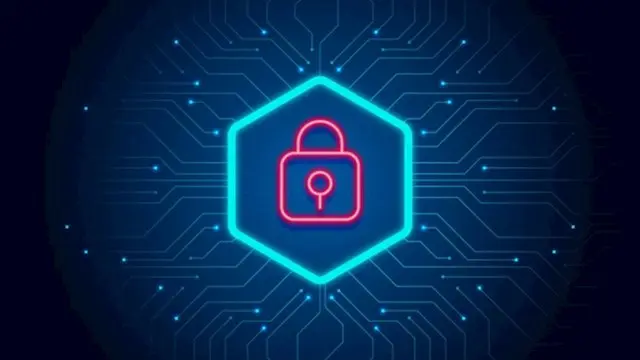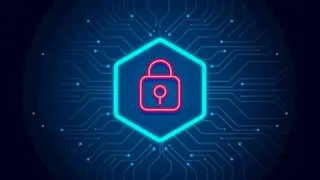
CISSP (Certified Information Systems Security Professional)
Self-paced videos, Lifetime access, Study material, Certification prep, Technical support, Course Completion Certificate
Uplatz
Summary
- Certificate of completion - Free
- Reed courses certificate of completion - Free
Add to basket or enquire
Overview
Uplatz provides this comprehensive course on CISSP - Certified Information Systems Security Professional. It is a self-paced course consisting of video lectures. You will be awarded Course Completion Certificate at the end of the course.
The CISSP is an information security certification for security analysts. It was created by the International Information Systems Security Certification Consortium (ISC). The certification was created to ensure professionals in computer security have standardized knowledge of the field. Earning a Certified Information Systems Security Professional certificate can help you have a successful career as a computer security professional.
The Certified Information Systems Security Professional (CISSP) exam is a six-hour exam consisting of 250 questions that certifies security professionals in ten different areas, of access control systems and methodology, business continuity planning and disaster recovery planning, physical security, operations, security, management practices, telecommunications and networking security. Other areas important to the CISSP certification are cryptography, security architecture application and systems development, law, investigation, and ethics.
To become certified as a CISSP, you will need at least five years of full-time, paid work as a security analyst in two or more of the eight domains covered in the CISSP, such as cryptography and software development security There are experience wavers available for those with college degrees and additional credentials if these are approved by the (ISC). You also can become an Associate of the (ISC) and earn the CISSP when you meet your experience requirement. The next step is to prepare for and pass the exam. You will need to have a score a minimum of 700 out of 1000 points to pass the exam.
After passing the exam, you will need to have an endorsement in subscribing to the (ISC) Code of Ethics and you will have to have endorsement from another (ISC) professional who can verify your professional experience requirements such as length of employment, professional reputation, and continuing education as a security analyst. Obtaining a professional endorsement from a current member is the reason it important to belong to professional organizations and to participate in professional seminars and events. These are useful career moves that are useful for networking with potential endorsers of your CISSP application.
A CISSP certification requires an annual maintenance fee of $85 at the end of each certification year, and you must take the test every three years to remain a member in good standing with the certification. You must earn at least a minimum of 20 Continuing Professional Education (CPE) credits each year within the three-year certification cycle. You can re-certify by completing 40 annual CPEs and paying the annual maintenance fee. These classes can be taken at a university or through online courses dedicated to security issues.
The following domains are covered in CISSP certification exam -
- Security and Risk Management
- Asset Security
- Security Architecture and Engineering
- Communication and Network Security
- Identity and Access Management
- Security Assessment and Testing
- Security Operations
- Software Development Security
If you're building a career in information security the Certified Information Systems Security Professional (CISSP) is the must-have qualification to help you progress. It is a globally recognized standard that demonstrates your competence as an IT professional.
This course will prepare you with the knowledge and skills to complete the CISSP exam, which will get you Certified Information Systems Security Professional status. professional. Covering topics including cloud computing, mobile security, application development security, and risk management, you will gain the knowledge to best manage information security issues back in your organization.
Certified Information Systems Security Professional (CISSP) is an independent information security certification governed by the International Information Systems Security Certification Consortium, commonly known as (ISC)². The CISSP is considered the global standard that proves an individual's proficiency in several security disciplines. The certification is not just for the assessment of one’s solid knowledge about information security, it is also a standard of achievement that is acknowledged worldwide.
Certificates
Certificate of completion
Digital certificate - Included
Course Completion Certificate by Uplatz
Reed courses certificate of completion
Digital certificate - Included
Will be downloadable when all lectures have been completed
Curriculum
Course media
Description
This training provides an extensive review of information security concepts and industry best practices, covering the 8 domains of the CISSP Common Body of Knowledge (CBK):
The domains covered as part of the CISSP training are:
- Security and Risk Management (Security, Risk, Compliance, Law, Regulations, and Business Continuity)
- Asset Security (Protecting Security of Assets)
- Security Architecture and Engineering (Engineering and Management of Security)
- Communication and Network Security (Designing and Protecting Network Security)
- Identity and Access Management (IAM) (Controlling Access and Managing Identity)
- Security Assessment and Testing (Designing, Performing, and Analyzing Security Testing)
- Security Operations (Foundational Concepts, Investigations, Incident Management, and Disaster Recovery)
- Software Development Security (Understanding, Applying, and Enforcing Software Security)
Course Objectives
- You'll increase your expertise as leading information security systems professional, as defined by globally recognized CISSP certification
- You'll develop the expertise to manage a best-practice information security system, aligned to globally accepted standards, that ensures your organization's information assets are protected
- Be confident with emerging threats, technologies, regulations, standards, and industry best practices, and how to stay informed
- Be familiar with industry accepted terminology and practices used by information security professionals
Why CISSP?
In an ever-evolving field, IT professionals frequently find themselves plagued by the latest and greatest cyber security threats. To keep up with the changing tides, many professionals choose to pursue the Certified Information Security Professional, or CISSP, certification. Uplatz's cyber security training course on CISSP will help you accelerate your career by preparing you for the CISSP certification.
- To expand your knowledge in security concepts and practices.
- To show a dedication to the security discipline.
- To meet a growing demands for security professionals, and to work in a thriving field.
- To join a professional organization and to link up with like-minded individuals
- It is the credential for professionals who develop policies and procedures in information security.
- The CISSP certification confirms that you are capable of developing the information security policies, standards, and procedures, managing information security policies, standards and procedures
- This certification is a measure of your capabilities.
Who is this course for?
Everyone
Requirements
Passion to learn and succeed!
Career path
- Security Consultant
- Security Director/Manager
- IT Director/Manager
- Security System Engineer
- Security Auditor
- IT Security Architect
- Cyber Security Analyst
- Chief Information Security Officer
- Network Architect
- Information Security Consultant/Manager
- Identity and Access Management
- Active Directory Expert
- Advanced Cyber Security Architect/Engineer
- Security Operations Advisor - CISM/CISSP
- Cyber Expert
Questions and answers
Currently there are no Q&As for this course. Be the first to ask a question.
Reviews
Legal information
This course is advertised on reed.co.uk by the Course Provider, whose terms and conditions apply. Purchases are made directly from the Course Provider, and as such, content and materials are supplied by the Course Provider directly. Reed is acting as agent and not reseller in relation to this course. Reed's only responsibility is to facilitate your payment for the course. It is your responsibility to review and agree to the Course Provider's terms and conditions and satisfy yourself as to the suitability of the course you intend to purchase. Reed will not have any responsibility for the content of the course and/or associated materials.


